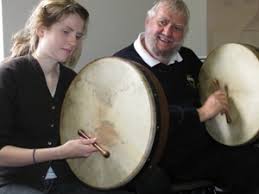 One of the best types of instruments according to many is the Bodhran. It is an Irish drum that can be used to create a unique sound based on the type of tip that you may be using. They can be a challenge to learn to play, but the rewards of doing so, can be impressive when you hear the beats of it. If you haven’t heard its unique sounds before, then perhaps it is time that you do.
One of the best types of instruments according to many is the Bodhran. It is an Irish drum that can be used to create a unique sound based on the type of tip that you may be using. They can be a challenge to learn to play, but the rewards of doing so, can be impressive when you hear the beats of it. If you haven’t heard its unique sounds before, then perhaps it is time that you do.
What is the Bodhran?
The Bodhran drum, was born during the mid-19th century and is thought of as an instrument that was fashioned from the tambourine. In fact, many consider it a “poor man’s tambourine” since it does not have the cymbals and such that are commonly on a “real” tambourine. It is also larger than the tambourines that we see used. Its drum ranges in size from 25 to 65 cm in diameter. Therefore, it is a lot larger than the drums we are used to seeing. The drum itself is made with animal skin or synthetic heads. The most popular is goatskin, which is tacked to one side of the drum leaving the back of it open for you to place your hand inside. This skin may be decorated to make the drum look more appealing. As you drum on it, your hand inside can change how the vibrations are heard, giving you full control over the pitch and timbre of each beat. At times, there may be crossbars inside of the drum, but most of the time they are left off. The skins are tightened or loosened to allow for the drum to be “tuned”. Overall, it is a simple drum to play once you know how to hold and use the beater if you do not wish to use your bare hand. This beater has what is often called a “tipper” and it can be made of a variety of different woods, which can also change the way the drum sounds.
How to Play the Bodhran
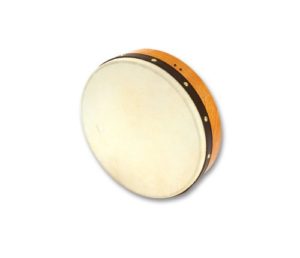 The Bodhran drum does not have a stand attached to it. The person playing it holds it on their knee and uses their hand inside of it to brace it. When playing, you can use the tipper to create different beats by tapping it with either end of the beater and speeding up or slowing down. You will have to practice some of the basic movements and how to hold the beater. Your beater should be able to wiggle in your hand while you are holding it in the center, and basically the same way as you would hold a pen. The first beat can be made as though you are touching the tip of a pen to an upright sheet of paper. You can then rotate your lower arm to flick and tap the “end” of the beater to the drum. If you learn how to do this, you will be able to learn other ways to make sounds with it.
The Bodhran drum does not have a stand attached to it. The person playing it holds it on their knee and uses their hand inside of it to brace it. When playing, you can use the tipper to create different beats by tapping it with either end of the beater and speeding up or slowing down. You will have to practice some of the basic movements and how to hold the beater. Your beater should be able to wiggle in your hand while you are holding it in the center, and basically the same way as you would hold a pen. The first beat can be made as though you are touching the tip of a pen to an upright sheet of paper. You can then rotate your lower arm to flick and tap the “end” of the beater to the drum. If you learn how to do this, you will be able to learn other ways to make sounds with it.
Tipper and Beater Styles
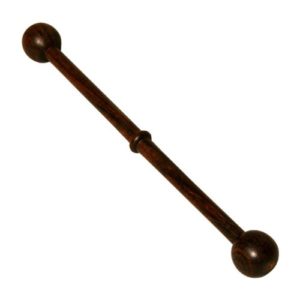 Beaters come in a variety of sizes and lengths. They and the tippers can be made of a variety of woods that include Ebony, Rosewood, Greenheart, Lignum Vitae, Purpleheart, Wenge, Ipe, cocobolo, Flame Maple, and more. There are also some people who say that the Corian tippers are ideal if you want a loud sound. To figure out which one you want to use, you will most likely have to take each one for a test drive to see if it has the sound you are looking for.
Beaters come in a variety of sizes and lengths. They and the tippers can be made of a variety of woods that include Ebony, Rosewood, Greenheart, Lignum Vitae, Purpleheart, Wenge, Ipe, cocobolo, Flame Maple, and more. There are also some people who say that the Corian tippers are ideal if you want a loud sound. To figure out which one you want to use, you will most likely have to take each one for a test drive to see if it has the sound you are looking for.
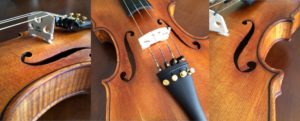 As a fiddle player, there is usually not much reason to change or upgrade your instruments. Instead, they will play an old fiddle that they have had for many years or one that is passed down to them from a family member that they can no longer play. Fiddles are very sentimental instruments that will live forever. They are cherished by players and their family members. A lot of good memories can be attached to one. One way to keep those fiddles beautiful is to consider applying a fiddle resin coating for the ultimate shine.
As a fiddle player, there is usually not much reason to change or upgrade your instruments. Instead, they will play an old fiddle that they have had for many years or one that is passed down to them from a family member that they can no longer play. Fiddles are very sentimental instruments that will live forever. They are cherished by players and their family members. A lot of good memories can be attached to one. One way to keep those fiddles beautiful is to consider applying a fiddle resin coating for the ultimate shine.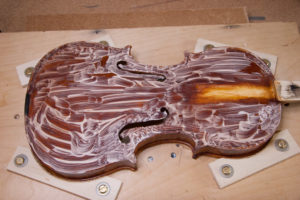 If you want to take it apart, you may need to send it off to a professional. If you simply want to make it look nice, you can do it without a professional if you are careful. Most all stringed instruments are coated with a varnish of some sort. Therefore, you should start by
If you want to take it apart, you may need to send it off to a professional. If you simply want to make it look nice, you can do it without a professional if you are careful. Most all stringed instruments are coated with a varnish of some sort. Therefore, you should start by 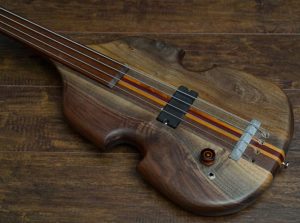 When you have refinished your fiddle, you will be anxious to test it out. You should wait until it is completely dry. Your fiddle will be beautiful in color and maybe even look better than it did when you got it. If you have to mess with the strings, you may have to retune it. This shouldn’t be a problem since you may have changed out the strings in an effort to make it look great again. You may be surprised by how fantastic your stringed instrument will look when you are done putting just a little bit of effort into it. It can be a musical instrument that you are proud to own and even more happy to play. If your fiddle was given to you by someone, they will likely even wish that they had thought about refinishing it for themselves.
When you have refinished your fiddle, you will be anxious to test it out. You should wait until it is completely dry. Your fiddle will be beautiful in color and maybe even look better than it did when you got it. If you have to mess with the strings, you may have to retune it. This shouldn’t be a problem since you may have changed out the strings in an effort to make it look great again. You may be surprised by how fantastic your stringed instrument will look when you are done putting just a little bit of effort into it. It can be a musical instrument that you are proud to own and even more happy to play. If your fiddle was given to you by someone, they will likely even wish that they had thought about refinishing it for themselves. Every person that plays the fiddle, sometimes wishes that they could perform for a large group of people. That is why you can sometimes see a person playing on the side of a busy road or out in the park. It takes a lot to get setup for a large performance, especially in a wide-open area. However, true fiddlers know that sound equipment for outdoor performances is what will make the difference on a couple people stopping to listen and drawing a crowd. Do you have what it takes?
Every person that plays the fiddle, sometimes wishes that they could perform for a large group of people. That is why you can sometimes see a person playing on the side of a busy road or out in the park. It takes a lot to get setup for a large performance, especially in a wide-open area. However, true fiddlers know that sound equipment for outdoor performances is what will make the difference on a couple people stopping to listen and drawing a crowd. Do you have what it takes? A fiddle is not known for its ability to project sound without help. They require having a wall or a stage to bounce off of if you want it to carry over a large distance. This can complicate things when someone has a desire to play in a park to try and entertain those who are nearby. Amplifiers and sound boosters are perfect for helping sound carry, but all those wires can become more a headache than they are worth. The more remote the area, the more awkward it will be to get everything set up. The good news for those fiddlers who play wherever the mood strikes them is that there is an easier solution.
A fiddle is not known for its ability to project sound without help. They require having a wall or a stage to bounce off of if you want it to carry over a large distance. This can complicate things when someone has a desire to play in a park to try and entertain those who are nearby. Amplifiers and sound boosters are perfect for helping sound carry, but all those wires can become more a headache than they are worth. The more remote the area, the more awkward it will be to get everything set up. The good news for those fiddlers who play wherever the mood strikes them is that there is an easier solution. Once you finally have all the right equipment and it is connected easily, you will be able to go anywhere you want to play your heart out to everyone within hearing distance. Those who are far enough away that they cannot hear you clearly will come closer to hear more after being tantalized by the sound of you playing. Those who cannot stay to listen to a full concert will likely tell others about the fiddler in the park that they heard, and then new people may come to hear you. Everyone will talk about not only your skill with a fiddle, but your outstanding sound equipment that allows your fiddle to carry on the breeze a little further than usual. Can you think of anything better?
Once you finally have all the right equipment and it is connected easily, you will be able to go anywhere you want to play your heart out to everyone within hearing distance. Those who are far enough away that they cannot hear you clearly will come closer to hear more after being tantalized by the sound of you playing. Those who cannot stay to listen to a full concert will likely tell others about the fiddler in the park that they heard, and then new people may come to hear you. Everyone will talk about not only your skill with a fiddle, but your outstanding sound equipment that allows your fiddle to carry on the breeze a little further than usual. Can you think of anything better? As we age, we tend to lose some of our motor skills and cognitive functions. It does not matter how well we eat or how nice our job is to us; it just happens. They say it is important to keep your mind and body busy and healthy. One of the best ways to ensure your mind is busy is to consider playing an instrument. If you pick up a fiddle now, you could easily be playing well into your senior years.
As we age, we tend to lose some of our motor skills and cognitive functions. It does not matter how well we eat or how nice our job is to us; it just happens. They say it is important to keep your mind and body busy and healthy. One of the best ways to ensure your mind is busy is to consider playing an instrument. If you pick up a fiddle now, you could easily be playing well into your senior years.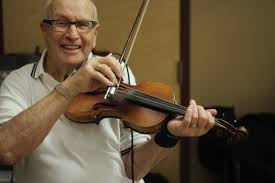 According to pretty much anyone that plays the fiddle can tell you that it is very easy to pick up and learn. It looks very complicated, but most say that you can learn how to play if you choose a good fiddle, a book to learn with, or even focus on YouTube videos that will show you step by step what you need to do. For seniors, this means that they can learn to play without having to leave their home, so it is ideal for seniors who may already have a disability or difficulty moving around. What you may not know is that the fiddle will also give you other helpful benefits.
According to pretty much anyone that plays the fiddle can tell you that it is very easy to pick up and learn. It looks very complicated, but most say that you can learn how to play if you choose a good fiddle, a book to learn with, or even focus on YouTube videos that will show you step by step what you need to do. For seniors, this means that they can learn to play without having to leave their home, so it is ideal for seniors who may already have a disability or difficulty moving around. What you may not know is that the fiddle will also give you other helpful benefits. It does not matter what your age may be today, picking up an instrument will be helpful. An instrument that you started playing in high school can still be enjoyed when you are older. If you were unable to start playing in high school, you can still decide that it is time to learn. All you have to do is start trying to figure out which one you feel will hold the most fun for you when trying to play. You want to make sure that you can learn it and enjoy it. Playing something that you do not enjoy will be less helpful than playing one that you can love. As a bonus, there are so many different instruments out there that finding your favorite will not be that hard to accomplish. You may even discover that there is one out there that you feel you were born to play.
It does not matter what your age may be today, picking up an instrument will be helpful. An instrument that you started playing in high school can still be enjoyed when you are older. If you were unable to start playing in high school, you can still decide that it is time to learn. All you have to do is start trying to figure out which one you feel will hold the most fun for you when trying to play. You want to make sure that you can learn it and enjoy it. Playing something that you do not enjoy will be less helpful than playing one that you can love. As a bonus, there are so many different instruments out there that finding your favorite will not be that hard to accomplish. You may even discover that there is one out there that you feel you were born to play. The fiddle is a simple to learn instrument, but it really isn’t that commonly heard. Most of the time, you see them in music videos or on a stage, but they are often not easily
The fiddle is a simple to learn instrument, but it really isn’t that commonly heard. Most of the time, you see them in music videos or on a stage, but they are often not easily  When it comes to choosing a perfect patio for your next performance, you may want to consider a few things. How are the acoustics in that area and is there enough room for people to sit or watch comfortably? These two questions should be at the top of the list. The patio most likely will have a backdrop for the sound to bounce off of, but that may not be helpful if the floor allows it to be absorbed by it. Therefore, you may consider
When it comes to choosing a perfect patio for your next performance, you may want to consider a few things. How are the acoustics in that area and is there enough room for people to sit or watch comfortably? These two questions should be at the top of the list. The patio most likely will have a backdrop for the sound to bounce off of, but that may not be helpful if the floor allows it to be absorbed by it. Therefore, you may consider  There is a certain beauty to the fiddle. It is simple, but looks very complicated. If you truly want to wow the crowd, you could spin, bounce, and do other things to ensure that the audience is fully captivated and intrigued by your
There is a certain beauty to the fiddle. It is simple, but looks very complicated. If you truly want to wow the crowd, you could spin, bounce, and do other things to ensure that the audience is fully captivated and intrigued by your 
 Any fiddle player knows that it does take a little effort to put on a good performance. Not only must they have the fiddle down and know how to play it well, but they must also perform in an area that will give it the right sound. In the great outdoors, this can prove to be a very
Any fiddle player knows that it does take a little effort to put on a good performance. Not only must they have the fiddle down and know how to play it well, but they must also perform in an area that will give it the right sound. In the great outdoors, this can prove to be a very When you play a fiddle in the wide-open space, you need to do what you can to ensure that it sounds like a fiddle should. In a large space, especially outdoors, the fiddle’s unique sound could be carried away on the breeze. At this point, you are faced with very few options. You can choose to only host indoor concerts, or you can
When you play a fiddle in the wide-open space, you need to do what you can to ensure that it sounds like a fiddle should. In a large space, especially outdoors, the fiddle’s unique sound could be carried away on the breeze. At this point, you are faced with very few options. You can choose to only host indoor concerts, or you can  Electronics can do a lot, but there is no reason to overlook the acoustics of a building. Theaters and concert halls are designed the way that they are for a reason. The stage is often set near a wall and all chairs wrap around the front of the stage. When you are hosting a backyard concert, you will not have the luxury of an enclosed space, but you can learn
Electronics can do a lot, but there is no reason to overlook the acoustics of a building. Theaters and concert halls are designed the way that they are for a reason. The stage is often set near a wall and all chairs wrap around the front of the stage. When you are hosting a backyard concert, you will not have the luxury of an enclosed space, but you can learn  Playing a violin is thought by many to be very calming to the mind and soul. It is something that most people stand up to play and say that it is the ideal way to deal with stressful days. For that reason, it is also something that many prefer to play outside. Outdoor events and concerts, or simply playing for the joy of doing so can
Playing a violin is thought by many to be very calming to the mind and soul. It is something that most people stand up to play and say that it is the ideal way to deal with stressful days. For that reason, it is also something that many prefer to play outside. Outdoor events and concerts, or simply playing for the joy of doing so can  The fiddle is a great instrument for people of all ages to learn to play. There are many who say that it is very difficult to learn, but really it isn’t that hard at all. It simply takes a little dedication to practice. Learning to play can improve your overall posture, give you a workout both physically and mentally, as well as provide you with a strong
The fiddle is a great instrument for people of all ages to learn to play. There are many who say that it is very difficult to learn, but really it isn’t that hard at all. It simply takes a little dedication to practice. Learning to play can improve your overall posture, give you a workout both physically and mentally, as well as provide you with a strong  Outside, you have a wide-open space to play in. However, you may not want to play in a wide area for many reasons. You have to think about the weather where you are. Too much sun will mean that you are hot and miserable while playing. Flies and gnats buzzing around your face could be more of a distraction if it is cloudy and cool. You also have to think of your acoustics. Sound does not sound as good in open spaces because there is nothing for it to bounce off of. Instead of a wide-open space, you may want to consider backing up to a building like the
Outside, you have a wide-open space to play in. However, you may not want to play in a wide area for many reasons. You have to think about the weather where you are. Too much sun will mean that you are hot and miserable while playing. Flies and gnats buzzing around your face could be more of a distraction if it is cloudy and cool. You also have to think of your acoustics. Sound does not sound as good in open spaces because there is nothing for it to bounce off of. Instead of a wide-open space, you may want to consider backing up to a building like the